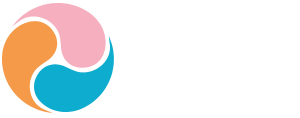In this 30-minute podcast, our ESG and Business Development Director, Fran Ellington, discussed:
- The benefits of sustainability to the business owner, staff, community and the planet.
- Structures of the various Social Enterprises and how to set up a Not-for-Profit Business.
- Validation/ badges for sustainable business such as PAS 2060 Carbon Neutral certification, Climate Positive or Net Zero accreditations, The Good Business Charter, CRS-A, B CORPs, ISO 14001.
1. The Benefits of Sustainability to the Owner, Staff, Community, Planet.
In the first podcast, we discussed why it makes good business sense to be sustainable, whether to attract new customers and clients, meet the demands of large business contracts, or attract and retain the best staff. “Profit with purpose” is set to become the new norm.
The Co-op’s 2021 Ethical Consumerism Report has tracked total UK ethical expenditure every year for the past two decades. The Co-op reports that in 2020 ethical consumer spending and finance in the UK broke through the £100bn mark for the first time, reaching record levels of some £122bn at the end of 2020. In 1999, the total size of ethical consumer markets in the UK was just £11.2bn.
But more urgently, it is necessary for the future existence of all life on earth! Have a go at the Financial Times climate game where you take on the role of Global Minister for Future Generations. Can you make the best decisions to keep the average global surface temperature below 1.5 degrees? The consequences of not meeting this limit are irreversibly disastrous, as the recent IPCC reports have proved.
In 2022 the big concern for the growing cohort of discernible consumers is “Green Wash”. So our mantra at Triple Bottom Line Accounting is authenticity – we help our clients to write a compelling, authentic, impact narrative. It starts with what you are doing well while being honest and upfront about past mistakes and current underperformance. Such honesty works well if you publish and report on your plans to do better.
2. Structures of the various Social Enterprises and how to set up a Not-for-Profit Business.
Fran described in this podcast the differences between the various entities for social enterprises and recommended this HMRC link for anyone thinking of setting up a not-for-profit business. These entities include Companies Limited by Guarantee, Community Interest Companies (CICs), Registered Charities, Charitable Incorporated Organisations (CIOs), Co-operatives and Unincorporated Associations. Listen in to find out which type of entity suits your intended purpose.
For further advice in Norfolk and Norwich, we recommend the Norfolk Community Foundation and Voluntary Norfolk, with TBLA providing the relevant accountancy support.
3. Validation/ badges for sustainable business
Fran covered the purpose of accreditations such as the PAS 2060 Carbon Neutral certification, Climate Positive or Net Zero accreditations, The Good Business Charter, CRS-A, B CORPs, and ISOs. She advises, “start by thinking about why you want this validation, it can be an onerous and time-consuming process for small businesses. You could poll your staff, clients and suppliers to find out if they care – are they happy knowing that you do these things without needing a “badge” to prove it? Would existing customers or clients use more of your services or buy more of your products if you had the badge? Would it attract a new cohort of clients? Would it attract investment and allow you to apply for a business loan at cheaper rates? Your larger customers might demand it as part of their corporate sustainability commitment or sustainable procurement policy.”
Fran concludes, “My experience is that going through the process makes you think hard about your policies, governance and organisational culture. It is a risk assessment for the future economic and environmental sustainability of your business ”. TBLA and Maple Cone have combined to offer consultancy services to SMEs wishing to measure and improve their ESG impact. To find out more, go to our ESG Impact page on the website.
Listen to the full recording here:

Fran leads TBLA’s sustainability services and HR function, delivering Net Zero Workshops, decarbonisation and ESG consultancy for SMEs and organisations. She develops and delivers sustainability education across multiple frameworks, notably as tutor for ESTU Global’s Sustainability Manager and Carbon Manager programmes, teaching sustainability managers and leaders from diverse corporate backgrounds. In her dual role at TBLA, she obtained B Corp certification and drives the company’s ongoing ESG momentum, while supporting TBLA’s commitment to environmental and social responsibility through practical sustainability solutions and a focus on inclusive team leadership through the company’s HR function.




